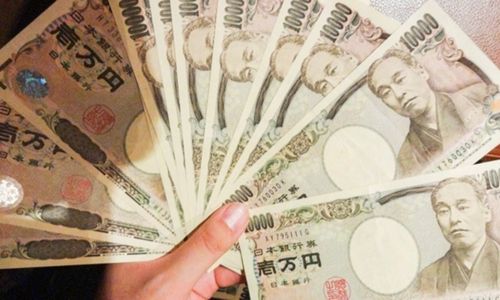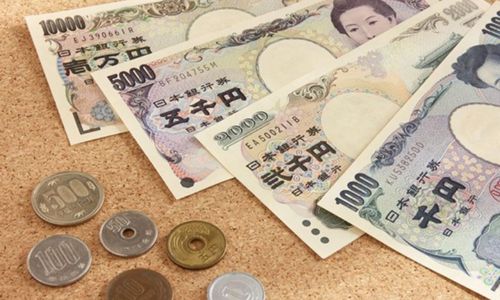In 2025, the average wage in Japan reflects a wide range of influences from job sector and geographic location to individual experience and broader economic trends. Gaining insight into these patterns is essential for anyone navigating Japan’s job market, whether you’re a local employee or an international job seeker exploring new prospects.
What Is the Average Wage in Japan Today?
As of 2025, the typical monthly wage in Japan is around ¥516,000, totalling approximately ¥6.2 million per year or about USD 41,800. The median income, sitting at ¥472,000/month, shows that half of the workers earn below this amount, while the other half make more.
Keep in mind, this is the gross income, meaning deductions for taxes, insurance, and pension haven’t been applied yet. Your actual earnings can look very different depending on your job sector, your skills and experience, and even the region you live in.
In places like Tokyo, where large corporations and international firms are concentrated, wages are typically higher, but so is the cost of living. Meanwhile, people working in smaller cities or rural areas may earn less, but everyday expenses such as housing and food are often far more manageable.
If you’re thinking about working in Japan, having a clear picture of how salaries vary can help. It gives you a better idea of what kind of lifestyle to expect and how to plan your finances depending on where and how you want to live.

Wages vary by region in Japan, affecting lifestyle and costs.
Average Wages in Japan by Job Type and Region
Here’s a quick look at average wages in Japan by job type and region. Salaries vary widely depending on the city and industry. This guide gives you a clear view of where and how much people typically earn.
Average Monthly Wages in Japan by Region
Wages in Japan differ by region, with major cities like Tokyo offering higher salaries due to living costs and job demand. This table shows how monthly earnings compare across key cities.
|
City |
AAvg Monthly Salary (JPY) |
AAvg Monthly Salary (USD) |
|
Tokyo |
¥574,000 |
$4,229 |
|
Yokohama |
¥564,000 |
$4,155 |
|
Osaka |
¥555,000 |
$4,089 |
|
Nagoya |
¥545,000 |
$4,015 |
|
Fukuoka |
¥526,000 |
$3,875 |
|
Kyoto |
¥505,000 |
$3,720 |
|
Kawasaki |
¥495,000 |
$3,647 |
|
Saitama |
¥486,000 |
$3,580 |
|
Hiroshima |
¥476,000 |
$3,507 |
|
Okinawa |
¥390,000 |
$2,873 |
This table highlights noticeable variations in monthly income across different Japanese cities. Tokyo ranks at the top with the highest average earnings (¥574,000 or $4,229), followed by cities like Yokohama and Osaka, where job opportunities and cost of living are also relatively high. On the other end of the spectrum, Okinawa reports the lowest average wage (¥390,000 or $2,873), reflecting a more modest economic landscape. These figures emphasise how location can greatly influence salary expectations for workers in Japan.
Average Salaries by Job Type
Income levels in Japan differ widely depending on your career field and responsibilities. Jobs that require advanced expertise or hold leadership roles often come with higher pay. The following table provides an overview of typical annual salaries for various professional positions, offering a clearer sense of what different roles tend to earn.
|
Job Role |
Avg Annual Salary (JPY) |
|
Software Engineer |
¥4,540,147 |
|
Data Analyst |
¥4,000,000 |
|
IT Project Manager |
¥5,409,522 |
|
UX Designer |
¥4,964,538 |
|
Digital Marketing Specialist |
¥4,000,000 |
|
HR Specialist |
¥4,211,656 |
|
DevOps Engineer |
¥5,000,000 |
|
Financial Analyst |
¥4,750,000 |
|
Business Manager |
¥6,067,822 |
The average annual salary for several common job positions in Japan is shown below. Among these, Business Manager holds the highest income, while roles like Data Analyst and Digital Marketing Specialist offer more modest pay. In general, fields such as information technology and finance tend to provide competitive salaries, reflecting the strong demand for expertise in these areas.
How Much Is Japan’s Minimum Wage?
As of 2025, Japan’s minimum wage varies by region, with the national average set at ¥1,090 per hour, approximately USD 7.18.
|
Prefecture |
Hourly Wage (JPY) |
Approx. USD Equivalent |
|
Tokyo |
¥1,163 |
$7.68 |
| Kanagawa |
¥1,162 |
$7.68 |
|
Osaka |
¥1,114 |
$7.43 |
|
Aichi |
¥1,077 |
$7.15 |
|
Saitama |
¥1,078 |
$7.16 |
|
Chiba |
¥1,076 |
$7.14 |
|
Okinawa |
¥893 |
$5.91 |
By the end of the fiscal year in March 2025, Japan raised its national average minimum wage by 5.1%, the biggest increase ever recorded. This change shows the government’s effort to improve earnings for workers with lower incomes and help them cope with rising living expenses. It is also aimed at encouraging more spending within the country and supporting economic progress by making sure wages grow alongside inflation and productivity.
Looking forward, the government plans to increase the average minimum wage to 1,500 yen per hour by 2030. This means a rise of about 42% compared to today’s rate. To reach this goal, cooperation between policymakers, businesses, and labour groups will be important to ensure that wage growth is balanced with the needs of companies to keep developing sustainably.
Minimum Wage of Japan in 2025 – Updated Rates
By 2025, Japan’s average hourly minimum wage will have risen to ¥1,054. The largest jump in recent years at 5.1% over the previous rate. Since each prefecture sets its standard, wages differ depending on where you live. Tokyo currently tops the chart at ¥1,163 per hour, followed closely by Kanagawa and Osaka. On the other end, Akita remains the lowest, offering ¥951 per hour.
To support household income and encourage stronger economic activity, the Japanese government is aiming to raise the nationwide average to ¥1,500 per hour by 2030. This long-term plan is designed to help ease the cost of living and address issues like Japan’s aging population and slower wage growth in certain areas.
Beyond regional figures, Japan also sets different wage minimums based on industry. Jobs that require specialised knowledge or involve more demanding tasks often come with higher pay floors. If both a regional and an industry-specific wage apply, workers benefit from whichever amount is greater, helping to ensure fair compensation across the board.

Minimum wages vary by region and industry to ensure fairness.
Minimum Wage in Japan in USD
Japan’s minimum wage is among the highest in Asia. For reference, consider the following comparisons:
|
Country |
Minimum Wage (USD) |
|
Japan |
$7.18 |
|
South Korea |
$1,570 |
|
Taiwan |
$846 |
|
Hong Kong |
$1,063 |
|
China |
$370 |
A comparison of minimum wages across various Asian countries reveals that Japan’s hourly pay, although expressed in dollars, is among the highest in the region. While Japan’s $7.18 per hour may seem lower than the monthly wages reported in South Korea and Hong Kong, it still represents a strong wage level when considered on an hourly basis. Meanwhile, nations such as China and Taiwan have considerably lower minimum wages, highlighting significant differences in labour earnings across Asia.
Can You Live on the Minimum Wage in Japan?
In 2025, the average minimum wage across Japan stands at ¥1,054 per hour, with regional differences – Tokyo offers the highest rate at ¥1,163, while Akita records the lowest at ¥951 per hour.
Working full-time at 40 hours weekly, a person earning the national average would bring home roughly ¥168,640 before taxes each month. Meanwhile, typical monthly expenses for a single individual (excluding rent) hover around ¥170,559, indicating that minimum wage income might fall short of covering essential costs, especially in larger cities.
Breakdown of Expenses:
- Housing: Rent varies considerably depending on location; shared rooms can cost near ¥20,000 monthly, whereas private apartments in Tokyo may reach ¥150,000.
- Utilities: Monthly bills for electricity, water, and gas usually total approximately ¥25,450.
- Food: Grocery spending averages around ¥38,000 per month.
- Transportation: A monthly pass for public transit generally costs about ¥8,000.
How Japan’s Wages Compare Globally
As of 2025, the typical yearly income in Japan is around ¥6.5 million, equivalent to roughly USD 45,585. This amount places the country below the OECD average, which is near USD 49,000, ranking Japan 25th among advanced economies.
By comparison, the average annual salary in the United States is about USD 85,812, while in the United Kingdom it is approximately USD 52,278. Over recent decades, wage growth in Japan has been relatively flat, with real incomes decreasing due to persistent deflation, demographic aging, and inflexible labour policies.
To counter these trends, the government has launched an ambitious plan to increase the minimum hourly wage nationwide to ¥1,500 by 2030, aiming to boost consumer spending and fuel economic expansion. Still, barriers exist. Small and medium enterprises, which employ about two-thirds of the workforce, have voiced concerns about the practicality of swift wage hikes amid rising operational costs and workforce shortages.
In conclusion, although Japan’s average pay falls short of many developed countries, ongoing reforms seek to tackle wage stagnation and raise living conditions. The effectiveness of these initiatives will hinge on striking a balance between fostering economic development and maintaining the viability of smaller businesses.

Japan income trends, reforms wage outlook
Conclusion
By 2025, the average wage in Japan is approximately ¥6.5 million per year (around USD 45,585), which still falls short compared to other advanced economies. While the government has raised the minimum hourly wage to ¥1,054 to support low-income earners, living in high-cost cities like Tokyo remains a financial challenge for many.
Wage growth continues to face hurdles, especially with Japan’s aging workforce and the pressure small businesses face from rising operational costs. Although there’s a national goal to raise the minimum wage to ¥1,500 per hour by 2030, turning this into reality will require a careful balance between supporting workers and maintaining business sustainability.
Japan offers a relatively secure job market, but improving income levels and purchasing power will be key to ensuring a better standard of living across the country. If you’re considering relocating to Japan, Arealty.jp is here to help, offering free guidance and customised housing solutions tailored to your lifestyle and budget.






Leave a Reply